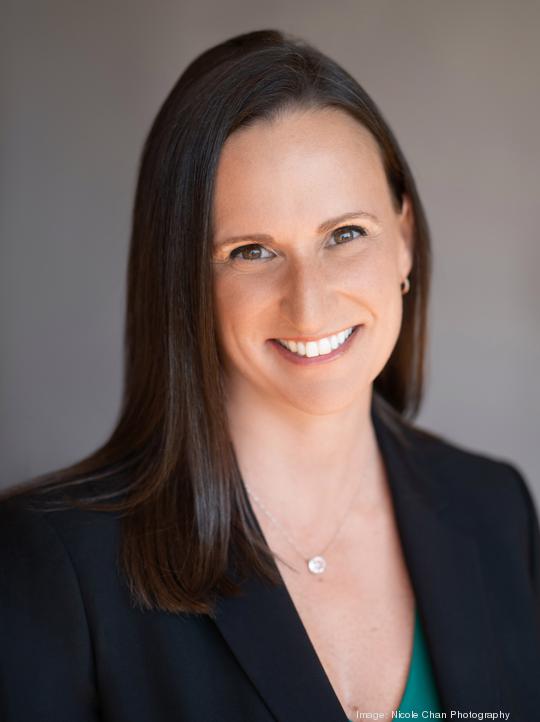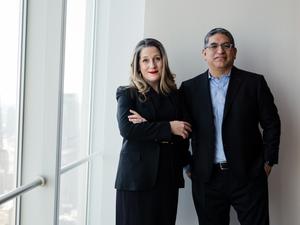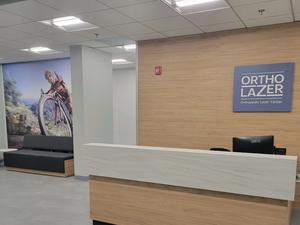
Cambridge Innovation Center’s public health work first began as an effort to keep its own clients healthy. In 2020, the organization teamed up with the Broad Institute to provide testing for innovators working in CIC’s offices and labs. CIC co-founder Tim Rowe worked with public-health experts such as Dr. Atul Gawande to spin out a new business called CIC Health in June 2020 to set up and manage the testing sites.
CIC Health quickly expanded beyond its own walls. Even during the brainstorming process, other companies and governments came knocking, asking if CIC could help roll out Covid-19 testing and, eventually, vaccine sites. Rowe said even though CIC was not a medical organization, it was skilled at managing events and organizing large groups of people.
“The way we framed it was, we were just sort of logistically good. We knew how to organize and make stuff happen. If you needed to organize an event for 1,000 people, we do that in our sleep. So what is a testing event other than an event for 1,000 people, where there’s a small medical thing that happens,” Rowe said.
Rachel Wilson joined CIC Health as president in September 2020 to lead its day-to-day operations. She was previously chief operating officer at Atrius Health. When she joined, Wilson said CIC Health had a few clients and was looking to scale to meet the growing community demand. After more than two years of growing the organization, Wilson was recently promoted to CEO. She spoke with BostInno about building a business in public health, leadership in uncertain times, and the future of CIC Health beyond the Covid-19 pandemic. This interview has been edited lightly for clarity and length.
Describe the role CIC Health played in bringing Covid-19 vaccines and testing to people across the country?
Part of the thesis behind what CIC Health was building is that there are labs out there that have capacity that isn't being tapped. What we can do is develop relationships with those labs. Our first and most significant lab partnership was with the Broad Institute of MIT and Harvard. We were able to be somewhat of the front end and back end of what the Broad Institute was doing. We were able to take all of these organizations that were contacting them and us, whether it was schools or businesses, who were interested in starting a testing program. We could build a relationship with them, understand their needs, bring together the doctors that write the physician orders, the labs that process the results. We would bring in staffing companies that could help organizations with collecting specimens and bring the software together so they could report results.
At CIC Health’s peak, what did your operations look like?
At one point, we were offering testing services in 18 different states. In most cases, they were with private companies or schools and universities.
And your work in Massachusetts?
We had a contract with the state in a couple of different ways. We launched three of their Stop the Spread sites. These were testing sites in what the state termed “health equity communities,” who often did not have easy access to testing. We also were in about 2,400 schools, performing testing for students, teachers and staff. And we led the mass-vaccination efforts at Gillette Stadium, Fenway Park, the Reggie Lewis Track and Athletics Center and Hynes Convention Center. We vaccinated over a million people in those sites over the first couple of months of the vaccine rollout. Then we went on to do a lot of community-based testing.
How has demand changed for Covid-19 testing and vaccines in recent months?
Now that we have a lot more vaccine availability, and antigen and other over-the-counter tests are more available, demand has definitely gone. We currently have contracts with the city of Boston through the Boston Public Health Commission to perform tests and vaccination sites in Roxbury and Dorchester. We are continuing to perform testing in the schools in the state of Washington, and then we still have some private schools and businesses that use our testing services.
What has it been like for you personally leading an organization that tackled an ever-evolving, ever-changing crisis like the Covid-19 pandemic?
Exhilarating, fulfilling, challenging. I'd say sometimes scary, demanding, but mostly incredibly fulfilling. In terms of the volatility of the business, we were founded to help support the Covid-19 response during the pandemic. So we were always clear that success would mean eventually our services would no longer being needed. What we've come to understand is that there continues to be real challenges with workforce capacity in healthcare and in public health.
As the push for Covid-19 testing and vaccines slows, how do you think CIC Health can continue to support public health work?
What we’re really good at is mobilizing lots of people and training them to help support responses. I can think of other types of situations where you need a lot of people to come in and help scale a response effort, maybe after an outbreak. It could be after a major storm or natural disaster and we need workforce to come and help support our government teams and our local health systems.
Given all the talk about Covid-19, RSV and flu outbreaks, are other vaccinations an area of interest for CIC Health?
They got me thinking a little bit about some of things I thought about in my last organization, which is a large, multispecialty physician organization, and thinking about things like vaccination rates for childhood immunizations and adult vaccines for not just flu and shingles, but also HPV and Hep B. We know there are disparities, in terms of vaccination rates across different groups. Is there a way for us to take what we’ve done during Covid-19 and maybe help public health departments and healthcare organizations support some of those preventative services getting more widely adopted?
Sign up for The Beat, BostInno’s free daily innovation newsletter. See past examples here.








